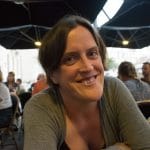 Claire Vicary is a 40 year old GP from Sheffield. She is a GP trainer and mum of 3 young children. This year she has been blogging throughout her cancer experience: thisgphadbowelcancer.com
Claire Vicary is a 40 year old GP from Sheffield. She is a GP trainer and mum of 3 young children. This year she has been blogging throughout her cancer experience: thisgphadbowelcancer.com
To say that the last year has been a challenging one is a bit of an understatement. At 39, I was not expecting to be diagnosed with cancer. In November 2019, at the end of a year of investigations for iron deficiency anaemia, the diagnosis of high risk stage 2 bowel cancer utterly floored me.
I’m still trying to make sense of it all, nearly a year on. I started a blog earlier this year as I have found that writing helps me sort through some of the head mess that is the aftermath of the cancer bombshell. It is strange and uncomfortable finding myself in the patient role, especially as I try to navigate my way through the nebulous and uncertain phase that is the “emotional recovery” from cancer.
It is strange and uncomfortable finding myself in the patient role.
I never thought that the way I managed my own cancer patients in primary care was substandard – in practice we would record the diagnosis, perform a cancer care review (often over the phone), flag up the notes with the necessary alert to watch for neutropenic sepsis during chemotherapy – everything that was “necessary”, but that was pretty much it.
How many of us really consider the side effects of the often unpronounceable cancer drugs listed in the oncology letter, or like me, do you simply file it away in the patient record without a second thought? What do we really understand about the challenges our cancer patients face, especially when the treatment ends?
No one told me that the physical recovery is the easy part of “getting over” cancer.
No one told me that the physical recovery is the easy part of “getting over” cancer – I knew roughly what to expect in terms of post-op recovery and I was well counselled about chemo effects.
The emotional recovery has, however, been an altogether different kettle of fish. I was plonked in the middle of a maze, blindfolded, 11 months ago, and I’m still trying to feel my way out. I’ve no idea yet how close I am to the exit.
I’m left wondering what I would have done if I hadn’t needed chemotherapy. How exactly would I have coped? Have 6 weeks off to recover from surgery and then return to work? It seems perverse to say it, but I was so glad to have chemo. I guess I knew deep down that I wasn’t mentally ready to return to work, but I didn’t need to think about it, because chemo gave me a legitimacy to be off. No one would expect me to return while still on treatment. But when chemo was stopped after 2 and half of the planned 8 cycles, I was devastated.
Not only did I worry that the risk of recurrence or metastases would be higher having not completed the course, (although I was surprised to learn just how small the absolute survival improvement was from adjuvant chemo – 5-8% were the figures quoted for my type of cancer), but all of a sudden I’d lost my “badge of legitimacy”. What would be expected of me now? I had, at this point, physically recovered from surgery, and was cycling, swimming and running better than I had done in years (albeit largely anger-fuelled).
To make matters worse (hear me out…) you don’t lose your hair with bowel cancer chemo and everyone was telling me just how healthy I appeared. To look at me you would never have known I’d had bowel cancer. Each comment was so well intentioned. Each time it hurt.
To make matters worse …. everyone was telling me just how healthy I appeared.
How, I wondered, was I supposed to admit to “not being ready” to go back, and with no idea as to when that might be. I was so worried about how others would perceive me, or my inability to “bounce back” from this.
And then along came Covid, at the worst possible time. Every GP fibre of my body was telling me I was needed at work (a message reinforced with the steady stream of emails from the College, BMA and GMC – all informing me that it was a case of all hands on deck). The guilt of not being there was suffocating, but the fear of judgement was even worse. Totally unfounded fear, I hasten to add. My colleagues have been amazingly supportive throughout. Far kinder to me, than I have been to myself.
Every GP fibre of my body was telling me I was needed at work…. The guilt of not being there was suffocating.
I know I would never speak to a patient in the way I speak to myself. But until bowel cancer, I wasn’t a patient.
I was superwoman.
I’d had no reason to doubt it – I could always do what was asked of me and more. I was able to juggle working 6 sessions as senior partner in the practice, a weekly out of hours shift, being a GP trainer, a wife, and a mum to 3 young children, with what I perceived to be relative ease. I could still find time to do all the fun things I wanted. I had the work-life balance sussed. My superwoman cape was well and truly flying.
It’s not that I thought any less of my patients, or thought myself better than them. It’s not that I lacked sincerity in my patient interactions – far from it. I simply wasn’t a patient. Therefore a different, totally unrealistic, set of standards applied to me.
My quick and relatively easy physical recovery only reinforced my misguided notion that I was superwoman, and that the rest of this recovery business would be a doddle. I was so naïve in underestimating its complexity.
As doctors we are encouraged to believe that we are superhuman, and after a while we buy into this mentality. It is a process that starts long before medical school. We are repeatedly told how we are more than capable – exceptional, in fact. We need to be in order to pass the multitude of exams, achieve the cherished Dr title and accumulate the post-nominals. We work hard, work long, and when we’re done, we work a little bit more, because no one wants to be treated by the doctor who just scraped through, right? We worry about success because we fear the judgement, not just of ourselves, but worse, that of others, should we fail. As a system, it works well in producing doctors who can function under intense pressure, but it has left me feeling pretty broken since cancer came along.
As doctors we are encouraged to believe that we are superhuman.
My expectations about recovery may have seemed completely unrealistic to some (okay, most), but to me, up until this year, I had no reason to doubt the achievability of my goals and expectations.
I have fallen so far short of my expectations in every aspect of my non-physical recovery. I still feel inadequate and simply not up to scratch. I should have been more resilient, emotionally stronger. I certainly should have been back at work by now.
Stupid and illogical I know, but what reason have I had, until now, not to believe it? And every time I discover just how far adrift my expectations of self-performance are from reality, I experience another grief reaction.
Parallels are regularly drawn between grief and cancer and with very good reason. I have experienced anger with such frightening intensity. I expected it to happen at some point, but I had anticipated some kind of “look out here I come” heralding cry. It hit me unannounced about 8 weeks in, and it hit me hard. And it still continues to rear its ugly head from time to time.
In a Saturday night quiz with friends a few weeks ago, the question was asked as to what the 2 “D”s stood for in the well-recognised 5 stage grief process. “Denial” tripped off the tongue. I couldn’t recall the other, “Depression”. Ironic really. I had been experiencing crippling insomnia for a month. The abilities to think clearly, act rationally and respond with some semblance of emotional balance gradually deserted me.
I never thought that my insomnia could be an indicator of anything else, let alone depression. In hindsight all the hallmarks were there. Of course, I never wanted to accept that it was even a possibility. I conveniently blinded myself to it, because I am not a patient, I am a doctor. We are not expected to suffer as others do, because people – patients, friends, relatives – turn to us for strength, so why should having cancer be any different?
I honestly thought I could run, swim and cycle my way to recovery. My GP Health practitioner, from whom I have been receiving psychological support since March of this year, has suggested that the depression has been masked by stamina. I suspect she’s right. But that’s been the problem all along, since before diagnosis. I kept going, kept pushing myself because I felt that I should be able to, I must not fail, I must not be like others…
Over these last few months, worn down by insomnia, I have been truly broken and I have finally surrendered. I have been forced to abandon all those falsely held beliefs about my own capabilities. It appears, I am only human after all and this is a difficult and painful realisation. But I think I am slowly getting there. I am starting to rebuild.
I am only human after all and this is a difficult and painful realisation.
I’ve learnt a lot over the last year – about bowel cancer, cancer treatments, being a patient, and more recently a lot about the peculiar, warped logic that comes from being a doctor-patient. I’m still learning the art of self-kindness – I’m by no means a master, but I see now just how awful we are as doctors, at administering this particular kind of medicine, but also how vitally important it is. I hope the latest model of myself has a bit more self-kindness built in.
So, if anyone had told me that the emotional recovery was going to be the hardest part of the “cancer journey” by far, would it have helped? Would I have believed them? Probably not, because it was what happened to “other” people, remember, not me. But perhaps forewarned might have been forearmed.
Be aware, be very aware. It will hit your cancer patients sooner or later, and perhaps in ways they don’t expect. They are likely going to need time and support to rebuild, and as GPs, we are well placed to help them find the building tools they need.
Featured photo by US National Cancer Institute on Unsplash

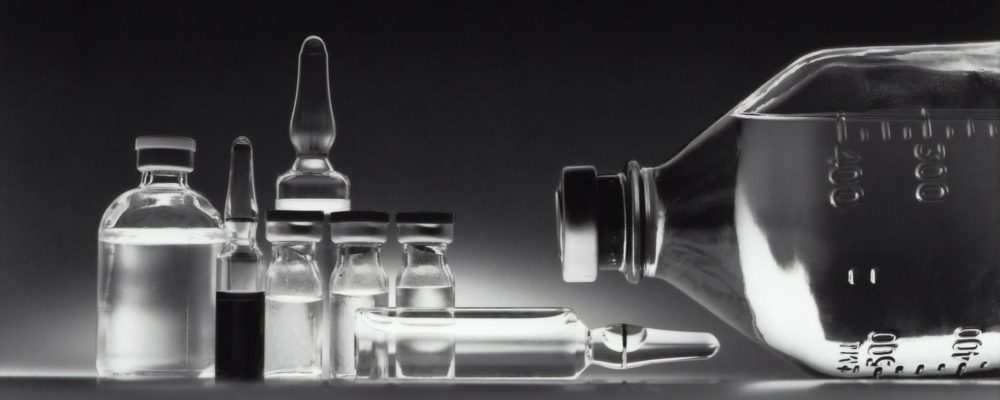
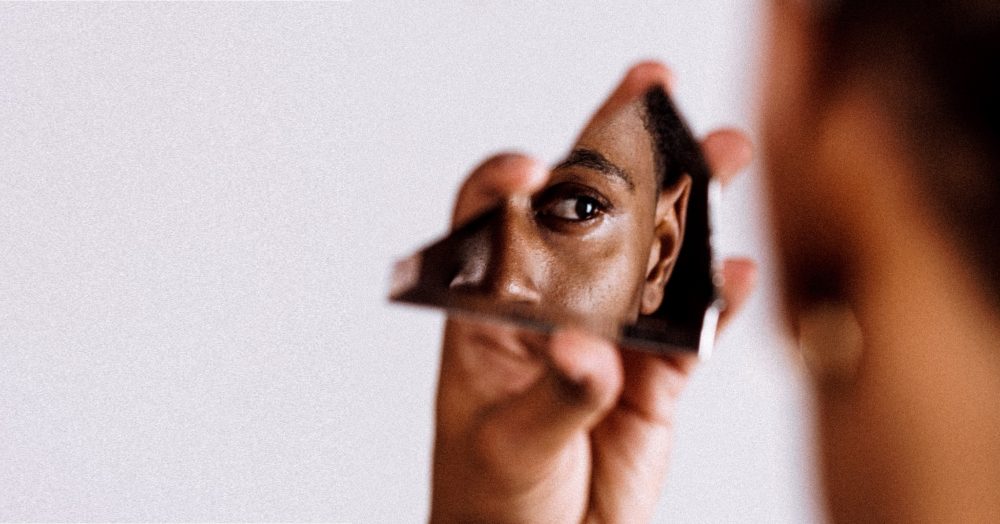
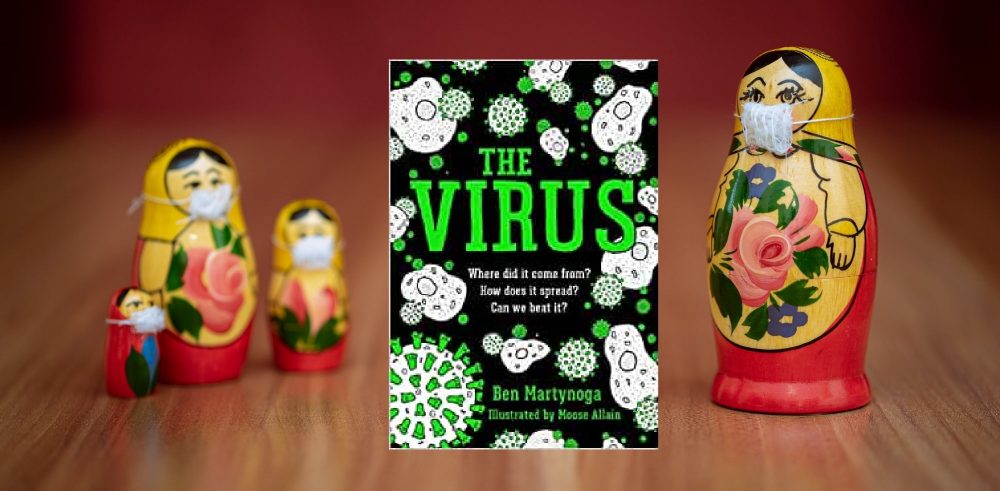




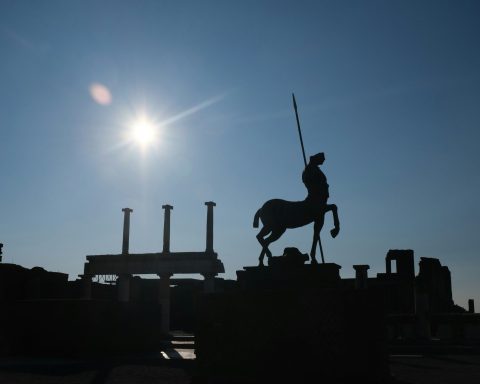
24th November 2021
Today is my second “Cancerversary”. It’s 2 years to the day since I received my cancer diagnosis. Sh*t Sunday, the 24th November 2019, is indelibly etched on my mind.
So much has happened since then: surgery, my somewhat abortive forays into chemotherapy, a whole heap of counselling and psychotherapy, and I’m finally learning to put down “the box”…
This time last year, on my first cancerversary, I went for a run up on the local crags. I got ever so slightly lost and ended up in a field, face to face with a bull. No joke.
Facing immovable obstacles…a bit like cancer really!
I’ve blogged recently about metaphors. Well that seemed to be the perfect metaphor for where I was in my recovery. We had a bit of a stand-off, the bull and I, but it was pretty clear he wasn’t shifting and quite frankly, he was a lot bigger than me!
I often think back to that day and just what that bull encapsulated. That bull was, in that moment, my cancer. I hadn’t planned on that bovine encounter, just as I hadn’t planned on ever having cancer, but there I was, facing it. And in hindsight, it seemed pretty apt that the encounter was a year down the line. Cancer “gone” in theory, and yet the recovery, certainly emotionally, only just beginning.
But I couldn’t stay in that field forever, just as I couldn’t stay paralysed by my cancer experience.
I needed to find an alternative path. Cancer has certainly taken me on a different path to what I had planned, and as mentioned previously, as a consummate planner, the cancer curveball was particularly hard to deal with.
Perhaps even more appropriately, I had no signal up on the crags – so no access to Google maps. I was solely dependent on my very poor sense of direction, and a lot of trial and error, before recognizing any landmarks I’d passed on my way up, and finally returning to the safety of my car.
There is no rulebook when it comes to cancer recovery. As I’ve documented previously, you get dumped, unceremoniously, in the middle of a maze, blindfolded, and are left to figure your own way out. You have absolutely no idea how close you are to the exit. I have been very, very slowly, inching forward, feeling my way out, often seemingly 2 steps forward, 1 step back.
So, 2 years on, and I find I have a good opportunity to reflect on where exactly I am in the “maze”.
Physically I’m good. There’s been no sign of recurrence to date, but I can feel my anxiety levels rising as my 2-year surveillance scan looms next month. I worry about what happens beyond 2 years. I know that the evidence suggests I probably don’t need a scan beyond 2 years, but this terrifies me. Where do I fit into the evidence base on which that decision is made? What’s to say that I won’t get recurrence or metastases beyond 2 years. How does the delay to diagnosis impact on my individual risk of recurrence/mets?
Every single niggle I experience brings about an internal struggle between the very small rational voice telling me it’s most likely nothing, and the very loud irrational voice shouting at me that “CLEARLY THIS IS CANCER RELATED!”. Given that I am in a constant state of hypervigilance, this is a daily battle and it is exhausting. And as a doctor-patient, I have the additional struggle to determine, whether “this” – whatever particular niggle is preoccupying my mind- is actually clinically significant enough to seek some medical advice about, or whether my GP is just going to think I am suffering from a severe case of fruit-loopery.
I’m running, swimming and cycling regularly, but having always enjoyed exercise, I’m wondering when I will be driven by the sheer enjoyment of it, rather than my aim to be in peak physical fitness should the cancer return and need further surgery. Because to be completely honest, that, right now, remains the primary motivator.
Tiredness. Constant tiredness. I often look back at how I was working pre diagnosis with amazement – I don’t know how I did it, and right now, I just can’t envisage ever having the energy or capacity to work that way again.
Why the fatigue? Is it simply that I’m still physically recovering from the insult that was the cancer? Perhaps. The effects of chemo? I only had 2 and a half cycles of very well tolerated oral chemotherapy, so I remain unconvinced. Work? Possibly, but I’m only doing 2 and a half days. Family life? Definitely tiring but so enjoyable (the majority of the time!).
I think it’s carrying that box , and the constant fight to try and pick out the timid, quiet voice of rationality amidst the overwhelming noise of neurosis.
That’s what it is. That is what is so utterly, utterly exhausting.
Mentally, I’m getting there. And it’s in the “getting better”, that I see just what a mess I was in last year.
I still have no idea how close I am to the exit of the “cancer maze” – I don’t know if you ever actually make it out – but one thing I can say for certain, is this…
I am a whole lot further out from the middle of the maze than I was 2 years ago.
And I’ll just keep putting one foot in front of the other. 😊
Cancerversaries…and bull encounters…